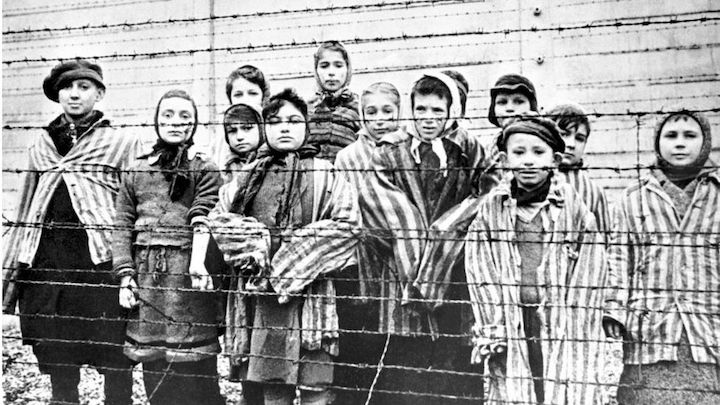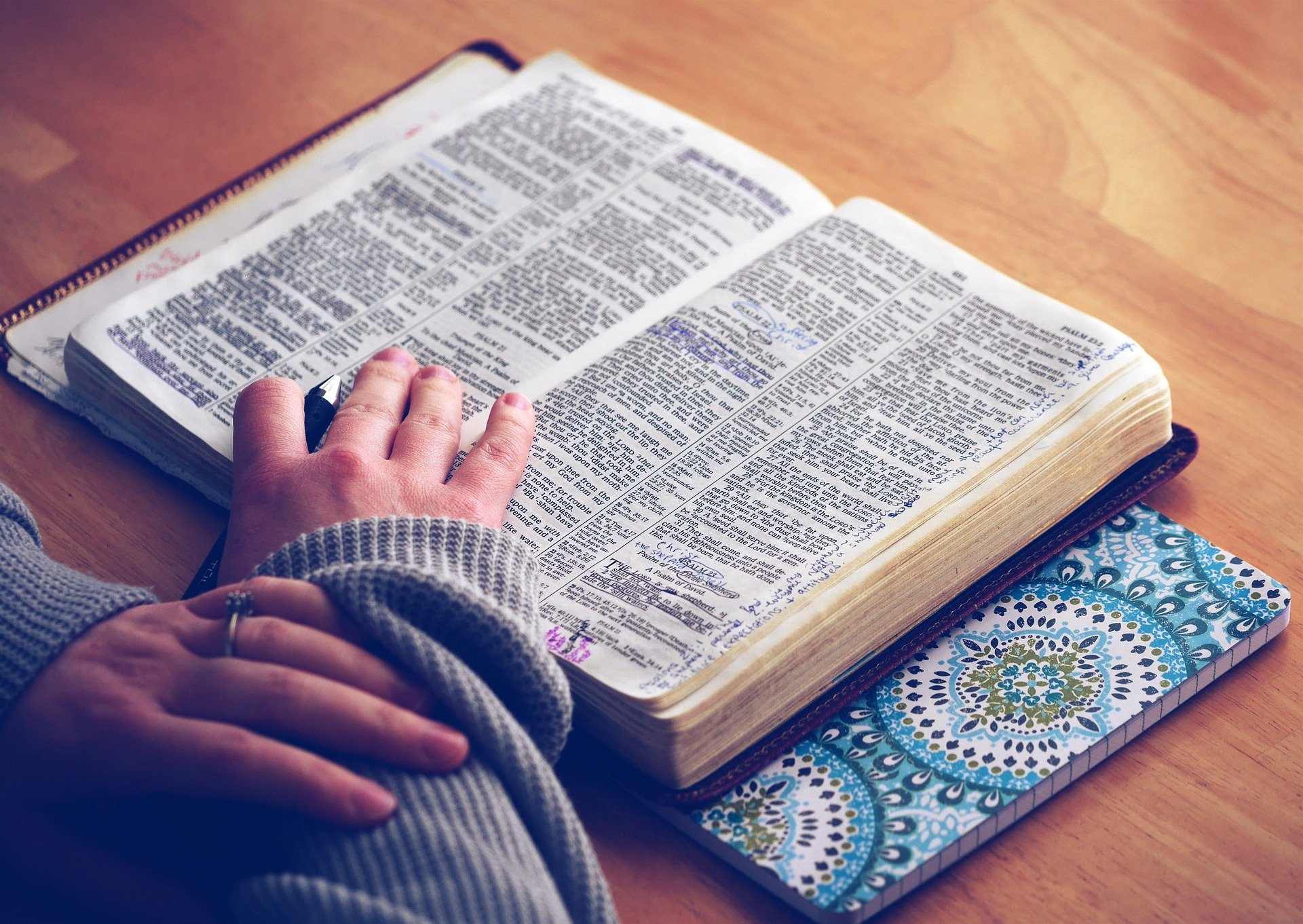The Bible and Responding to the Oppressed
“Without the great revelations, epics and philosophies as part of our natural vision, there is nothing to see out there, and eventually little left inside. The Bible is not the only means to furnish a mind, but without a book of similar gravity, read with the gravity of the potential believer, it will remain unfurnished.”
Allan Bloom
The Closing of the American Mind
I love reading all kinds of books, but if I was ever in a situation where Icould only have one book to read it would be the Bible. I don’t read my Bible every day, I have tried that several times because others have told me that is a good discipline, but it doesn’t work for me. However, I do study my Bible every week. Every week I read a passage, think about it, then read it again a few days later. Often I use technical Bible
 Commentaries and Greek/English or Hebrew/English dictionaries to understand the precise meaning of a word or a passage. I have also memorized close to 300 Bible verses. The Bible is not an easy book to read or understand, but I feel like without it I would be lost. Some weeks the scriptures have a bigger impact than others. Last week the impact felt huge.
Commentaries and Greek/English or Hebrew/English dictionaries to understand the precise meaning of a word or a passage. I have also memorized close to 300 Bible verses. The Bible is not an easy book to read or understand, but I feel like without it I would be lost. Some weeks the scriptures have a bigger impact than others. Last week the impact felt huge.
CONTEMPLATING OPPRESSION
Last week I was studying the book of Ecclesiastes, an obscure, pessimistic book in the Old Testament. The book has no stated author, and Biblical scholars, debate who might have written the book. I think it was written by King Solomon, who ruled over Israel between 962 and 922 BCE. Whether it was Solomon or someone else, it was written by someone who has all the wealth and power that can be imagined and yet finds life totally empty. The author’s favorite phrase, which repeats often throughout the book, is, “meaningless, meaningless, everything is meaningless”.
In chapter 4 he writes, “I saw the tears of the oppressed-and they have no comforter; power was on the side of their oppressors-and they have no comforter.” He goes on to observe that the dead are better off than the living and better still are those who have not lived.
Oppression is the exercise of authority or power in a burdensome, cruel or unjust manner. Oppression can be objective; for example, when governments, armies, or police use their authority in a cruel way. I don’t think that there is any doubt that Hitler’s concentration camps or Stalin’s

gulags or were oppressive. Those camps were oppressive to those in the camps, but they were also oppressive to those who lived in fear of being sent to those camps. However, oppression can also be subjective. High school students and enlisted personnel in the military often feel oppressed, it is questionable if they are really oppressed or not. Perhaps it doesn’t matter if these groups are oppressed, the point is they feel oppressed, and their tears, fear, and sadness are real.
As I pondered this chapter, I thought about why the oppression the author sees makes him think that the dead are better off than the living. It seems to me that nothing is more depressing than seeing the “tears of the oppressed” and then doing nothing about it. Apparently this rich and powerful man did nothing to ease the suffering of the oppressed. I understand doing nothing, there is always a cost, sometimes a very high cost, to getting involved in this kind of work.
I also reflected on historical figures who saw oppression and did what they could to ease the suffering of the oppressed: people like Jane Addams, Dorothy Day, Frances Perkins, Martin Luther King Jr., John Lewis and many others. These heroes did not eliminate oppression, but they did fight against it and did what they could to let the oppressed know they were not alone. I don’t think any of these men and women would ever say that the dead are better off than the living.

Frances Perkins
MY PERSONAL ENCOUNTER AND RESPONSE TO OPPRESSION
Finally, I reflected on the oppression which I have seen and felt in my life. I felt oppressed when I was in the US Navy. Those who were in charge were not just my bosses, they were my commanders. They could order me to work on the weekend and if I said no, or didn’t show up, I wasn’t fired; rather I would have been court-martial and sent to the brig. I often felt like those who oversaw my life abused their power and cared nothing for my life or my situation. I understand that this may not be real oppression, but rather how a 19-year-old Brad looked at the situation. Solomon looks at the

Yokosuka Servicemen’s Center
oppressed and writes, “they have no comforter.” When I think about my time in the Navy, my comforters were missionaries with Cadence International. People who, like Frances Perkins and Jane Addams, gave up their own lives to run the Christian Servicemen’s Center in Yokosuka, Japan and Subic Bay, Philippines. Our comforters were Erv and Elsie Meyer, Jerry and Irene Bates, Abe and Ellen Teeny, and Frank Branham. We owe our lives to them. There is no doubt that I chose to minister to the military because I want to relieve some of the burden, if not the oppression, of men and women in the military.
Since teaching high school in Phoenix in 2006, I have come to see that high school students live under a kind of oppression. They have little power over the classes that they take, or the grades they get. Too often they are in classes with teachers who are burned out and are teaching the same lesson they have taught for years. Students must sit in classes and endure the process. It feels oppressive to many of them. I am a substitute teacher largely because I am trying to relieve some of the burden that high school students often feel.
I don’t do much! I am not as sacrificial or as committed as Martin Luther King Jr. or John Lewis. However, I am doing what I can. And, I don’t feel the depression of the author of Ecclesiastes. I think when we do what we can for others we find that life is worth living. And when we live only for our pleasure, life becomes dark and meaningless. (Check out these verses: Psalms 9:9,Isaiah 1:17, Luke 4:18-19, Micah 6:8).
This week my study of the Bible was deeply emotional for me. I cried with gratitude when I remembered those who sacrificed to share my pain when I was in the Navy. (I am not making this up, I really did cry. I cry a lot, perhaps I need more counseling. But that is another blog for another time). I also cried with gratitude when I thought of how God has positioned me to help others who have felt oppressed. The Bible helps me to see beyond myself. It allows me to think about life in a deeper, more meaningful way. Some weeks this is stronger than others, but the point is that without the Bible I don’t know how I would live well. I love reading all kinds of books, but it is the Bible that connects me to God, to my purpose for being alive, and to others in deeper and profound ways than would not be possible without it.
It is my prayer that all of you are reading, studying, and thinking about the Bible in ways that move you to find ways to comfort the oppressed, and to lean into God, your purpose, and other people.
